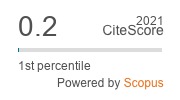Four Phase Pedagogy for Computer Experiments Based Curriculum using Cloud Computing Enabled Lab.
DOI:
https://doi.org/10.17762/msea.v71i4.1383Abstract
During COVID-19 pandemic, people faced several behavioral problems and nasty emotions, thoughts and physical sensations such as boredom, aimlessness education related issues, conflicts with parents and educators. COVID-19 changed the Teaching-Learning scenario, during and after pandemic, all teaching institutions shifted to online or blended (online and offline) teaching mode. Hands-on practical experience through lab work has long been recognized as an essential part of the computer science / information technology education. Successful computer science hands-on activities need to be operation full time. In this scenario, concept of four-phase pedagogy with cloud enable computer lab provides a better solution for higher education organizations or for IT training programmes. The proposed model permits the teachers and students to perform the experimental tasks and complete their curriculum without physically being present in the lab. It breaks the boundaries of time and distance; user can work in lab round the clock. Earlier students have to be time bound and restricted for hands-on activities and lab experiments. The term “cloud computing” is used for the computation over the Internet and ability to run a program or application on many connected computers over the network at the same time. In this, authors discussed working of four phase pedagogy using cloud enable computer lab and Concept, general paradigms also discussed. It includes andragogy for effective students teaching and learning process. Students should know why syllabus contents are important prior to learning it.




